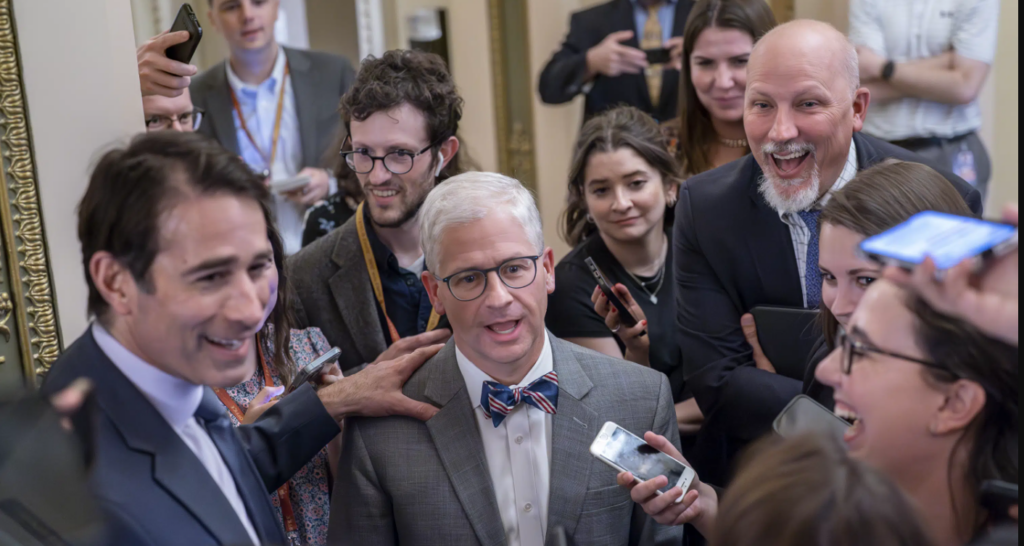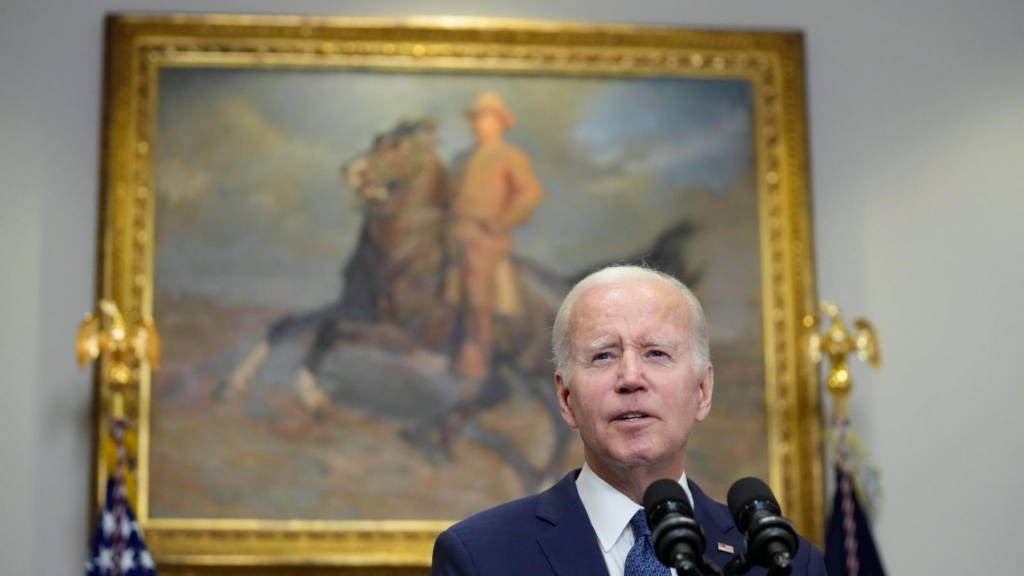
As details of the debt ceiling agreement between President Joe Biden and House Speaker Kevin McCarthy surface, evaluations are beginning.
Before viewing those specifics, some senators criticized the accord for not doing enough to reduce the nation’s debt, while others warned it was too austere and would hurt low-income Americans.
To pass the split House and get 60 Senate votes, the bill will likely need bipartisan backing.
Many politicians withheld judgment until they saw the exact facts, many of which were released Sunday evening. Biden-McCarthy’s 99-page bill was released then.

The agreement’s progress:
Early Concerns
Conservative members of Congress, especially the House Freedom Caucus that typically battles with GOP leadership, are objecting early.
Matt Rosendale, R-Mont, tweeted, “Disaster!”
“Fake conservatives agree to fake spending cuts,” tweeted Sen. Rand Paul, R-Ky.
“This ‘deal’ is insanity,” tweeted Rep. Ralph Norman, R-S.C. We did not agree to a $4T debt ceiling rise without cutbacks. Voting against national bankruptcy. Americans deserve better.”
GOP leaders recognized any agreement with a Democratic White House and Senate would alienate some members’ support. The deal’s Democratic backing was always in doubt.

Democrats vote.
As they await further specifics, Democrats are wary about a budget restriction on non-defense programs next year and work requirements for additional food stamp beneficiaries.
Rep. Annie Kuster, D-N.H., chairwoman of the New Dems, a 100-member center-left caucus, said the party is “confident” that White House negotiators presented a “viable, bipartisan solution to end this crisis.”
Given House Republican demands, Sen. Chris Coons, D-Del., thought it was the best arrangement.
Coons said this arrangement is better than defaulting.
Liberal caucus members would likely oppose. Rep. Pramila Jayapal, D-Wash., opposes job requirements for food and cash aid recipients. She called it bad policy Sunday on CNN’s “State of the Union.”
She said she is also waiting for legislation language to evaluate the extent of exemptions Biden won for veterans, homeless persons, and foster care graduates from employment requirements.
“And so what do the numbers look like at the end of the day, I’m not sure,” said Jayapal, Congressional Progressive Caucus chair. It’s horrible policy. I told the president directly when he phoned me last Wednesday that this is signaling to poor and needy people that we don’t trust them.”
Jayapal said, “Yes, they have to worry.”
A clause that expedites the approval of the Mountain Valley Pipeline, a West Virginia-Virginia natural gas pipeline, would also worry Democrats. They had kept it out of earlier measures, but Sen. Joe Manchin, D-W.Va., and other West Virginians got it into the debt ceiling bill. Sunday night environmentalists slammed its inclusion.
Supporting Approves
Major business organizations have been lobbying Washington to move fast on a debt-ceiling raise to avoid a worldwide default in a week.
Over 200 CEOs from the Business Roundtable urged Congress to enact the package quickly.
CEO Joshua Bolten stated, “In addition to raising the debt ceiling, this agreement takes steps toward putting the U.S. on a more sustainable fiscal trajectory.” This contract also funds permitting reform, paving the way for future energy infrastructure projects.
The U.S. Chamber of Commerce encouraged a yes vote and underlined that the vote will be included when the group “scorecards” members of Congress based on their business priority votes.
Even a short-term failure to pay payments would cause interest rates to soar and global markets to plummet, economists have warned.
“The gravity of this moment cannot be overstated,” said business group president and CEO Suzanne Clark.
Watch Dogs Approve
Advocacy organizations have noted that Congress sometimes passes legislative initiatives without properly funding them. They’re usually ignored. Some view the deal as a positive move.
The Committee for a Responsible Federal Budget emphasized that the measure would be the first major deficit-reducing budget deal in over a decade.
“The process was tense, risky, and ugly, but in the end, we have a plan to enact savings and lift the debt ceiling, and that is what is needed,” said group president Maya MacGuineas.
